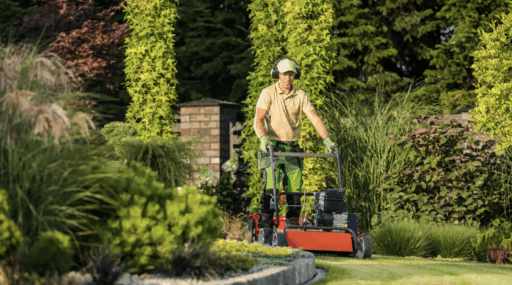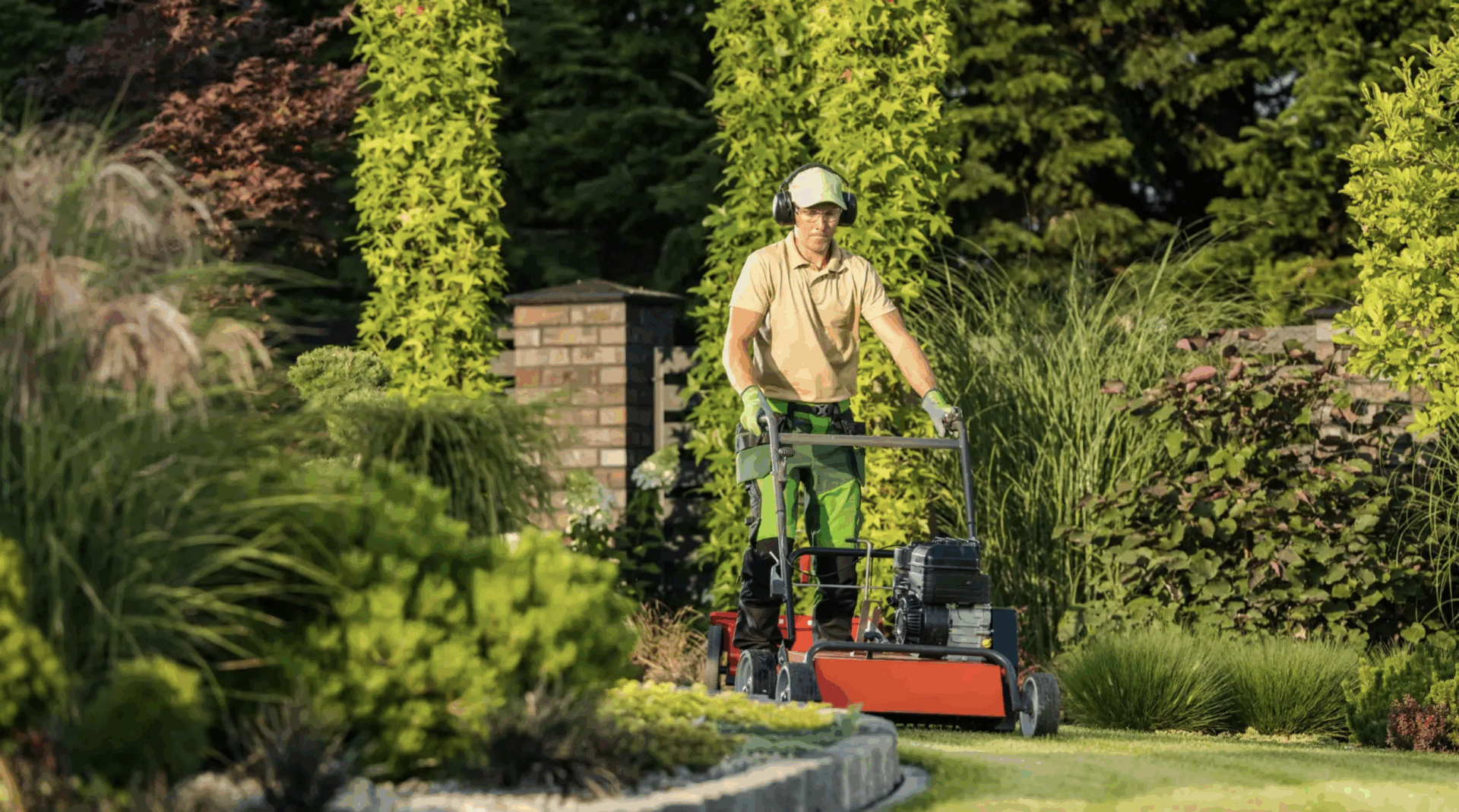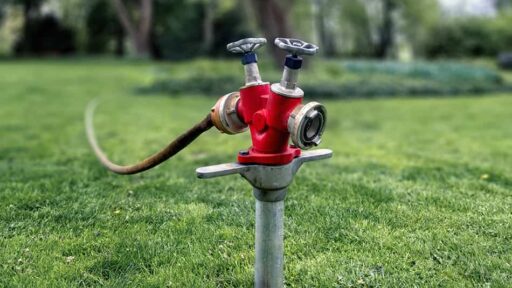At some point, every owner starts to wonder, “Is it time to sell my lawn care business?” When that moment comes, understanding what makes your company valuable to buyers is key to positioning it for a successful sale.
Lawn care businesses have become increasingly appealing to buyers seeking stable, cash-generating investments. The outdoor services industry offers predictable seasonal patterns, established customer bases, and scalable operations that attract both individual investors and corporate buyers. The demand for professional lawn care continues to grow as homeowners prioritize outdoor aesthetics and lack time for yard maintenance. This market growth creates favorable conditions for business owners ready to exit their operations.
Key Valuation Factors That Drive Sale Prices
Several critical elements determine how much buyers will pay for your lawn care operation. Understanding these factors allows you to strengthen weak areas before marketing your business.
Recurring Contract Revenue and Customer Agreements
Monthly and seasonal service contracts form the cornerstone of valuable lawn care businesses. Buyers prize predictable income streams that reduce uncertainty about future cash flow and customer retention.
Document your contract structure thoroughly. Include average contract lengths, renewal rates, and payment terms. Businesses with strong contract bases often command higher purchase prices because they provide immediate revenue visibility for new owners.
Organize your service agreements by type and duration. Weekly mowing contracts, seasonal cleanup services, and landscaping maintenance agreements each contribute differently to business value. Long-term agreements with commercial properties typically carry premium valuations due to their stability and size.
Equipment Value and Operational Assets
Professional lawn care equipment represents significant tangible value in business sales. Quality mowers, trucks, trailers, and specialty tools reduce buyer startup costs and support immediate operational continuity.
Create detailed equipment inventories with purchase dates, maintenance records, and current condition assessments. Well-maintained equipment justifies higher asking prices and provides buyers confidence in ongoing operational reliability.
Document equipment replacement schedules and maintenance procedures. Buyers appreciate understanding future capital requirements and operational costs associated with maintaining your equipment fleet.
Seasonal Demand Patterns and Revenue Stability
Lawn care businesses experience natural seasonal fluctuations that buyers must understand when evaluating purchase opportunities. Clear documentation of seasonal patterns helps buyers plan cash flow and staffing requirements.
Break down income from mowing services, landscaping projects, roofing services, seasonal snow removal, holiday decorating, and other offerings to highlight revenue diversity and year-round growth opportunities.
Preparing Your Business for a Successful Sale
Proper preparation significantly impacts both sale timeline and final purchase price. Focus on areas that buyers evaluate most carefully during their due diligence process.
Organizing Client Information and Service Records
Comprehensive customer documentation demonstrates business professionalism and helps buyers understand relationship value. Organized client records also facilitate smoother ownership transitions.
Compile customer contact information, service histories, and billing records in accessible formats. Include notes about customer preferences, property challenges, and relationship details that help maintain service quality during ownership changes.
Create customer maps showing service routes and scheduling efficiency. Route optimization information helps buyers understand operational logistics and identify potential cost savings or expansion opportunities.
Streamlining Operations and Documenting Procedures
Efficient operations increase business value and reduce buyer concerns about management complexity. Well-documented procedures allow new owners to maintain service standards without extensive retraining.
Write detailed operating procedures for common services including mowing schedules, fertilization programs, and seasonal cleanup activities. Include safety protocols and quality control measures that protect both workers and customers.
Organize scheduling systems and job tracking methods. Buyers prefer businesses with systematic approaches to route planning and service scheduling that don’t rely entirely on owner knowledge.
Financial Organization and Performance Documentation
Clean financial records accelerate buyer evaluation and support higher valuations. Organized finances also demonstrate business professionalism that buyers value during negotiations.
Separate personal and business expenses completely. Many lawn care business owners mix personal equipment use and business operations, which creates confusion during buyer financial analysis.
Prepare profit and loss statements organized by service type and season. Break down income from mowing services, landscaping projects, and additional offerings to show revenue diversity and growth opportunities.
Marketing Your Lawn Care Business Effectively
Reaching qualified buyers requires strategic marketing approaches that highlight your business strengths while maintaining operational confidentiality.
Online Business Brokers and Marketplaces
While online platforms may offer exposure to buyers, many lawn care companies benefit more from strategic outreach through experienced advisors. Buyers in this space often rely on industry relationships to find businesses with reliable revenue and scalable operations.
Consider working with brokers or advisors who understand the lawn care and outdoor services industry. An Experienced Broker can help position your business more effectively, highlight its strengths, and improve outcomes by aligning with what buyers actually value.
Industry Networks and Professional Associations
Lawn care industry connections often provide access to qualified buyers who understand business operations and market conditions. These networks can facilitate introductions to serious acquisition candidates.
Participate in industry events and trade associations where potential buyers gather. Many successful landscaping business sale transactions begin through professional networking and industry relationships.
Connect with equipment dealers and suppliers who interact with multiple business owners. These relationships often provide insights into buyers seeking acquisition opportunities in your market area.
Managing Transition and Ensuring Continuity
Successful ownership transitions require careful planning to maintain customer relationships and operational effectiveness.
Staff Retention and Training Considerations
Your team’s continuity significantly impacts business value and transition success. Buyers worry about losing experienced workers who understand customer needs and operational procedures.
Develop retention strategies for key employees including crew leaders and customer service staff. Consider offering transition bonuses or involving important team members in sale discussions when appropriate.
Document training procedures and job responsibilities clearly. New owners benefit from understanding how you’ve developed employee skills and maintained service quality standards.
Customer Relationship Management during Transitions
Customer retention directly impacts post-sale business success and often influences final sale terms. Careful transition planning protects these valuable relationships.
Prepare customer introduction strategies that build confidence in new ownership while maintaining service continuity. Include information about how you’ll handle customer concerns and questions during ownership changes.
Consider your ongoing role in customer relationships after the sale. Many lawn care exit strategy plans include short-term consulting arrangements that help maintain customer satisfaction during transitions.
Achieving Your Business Exit Goals
When you are ready for selling a lawn care business, success depends on thorough preparation, realistic pricing, and professional execution. Focus on strengthening the operational systems and customer relationships that make lawn care businesses attractive to buyers.
Start your preparation early and consider professional guidance from advisors familiar with outdoor service business sales. The right preparation approach can help you achieve optimal results while ensuring smooth transitions for customers, employees, and new ownership.








![20 front yard succulent garden ideas[P]](https://cdn.enthrallinggumption.com/wp-content/uploads/2023/12/20frontyardsucculentgardenideas-512x288.jpg)